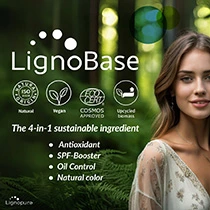Nextloopp food-grade PP recycling hits milestone as participants commence production trials

22 Apr 2022 --- Nextek’s Nextloopp food-grade PP recycling project is dispatching recycled PP (rPP) prototype resins from post-consumer food packaging to its 43 participants for new production trials.
The move follows successful trials with German recycling company Tomra in September 2021, where 99.9% sorting purity using Nextek’s invisible PolyPrism fluorescent markers was achieved.
Edward Kosior, Nextek’s founder, calls the new trials a “pivotal point” in the two-year project, with the commercialization of the rPP expected late this year or early next year.
“The trials will endorse the suitability of recycled plastics as a drop-in replacement for virgin PP plastics and provide data on the processing performance, mechanical properties and food contact migration compliance,” he tells PackagingInsights.
“These items will build the data bank of validated products that can meet the target of closing the loop on food-grade post-consumer rPP.”
Circular economy opportunities
The production trials of food-grade compliant rPP will begin shortly, making over 60 different products from Nextloopp’s four grades of PPristine food compliant and “INRT grade” resins.
 “The next steps [for Nextloopp) will be the final submission and approval of the [rPP] food safety,” says Nextek’s founder Edward Kosior.“The products will be showcased after internal evaluation and appropriate approvals are provided,” continues Kosior. “However, they will all be in food packaging and cosmetics products that will be injection molded, extruded to sheet, converted to film and thermoformed into mainline products used in a wide range of food types and cosmetic categories.”
“The next steps [for Nextloopp) will be the final submission and approval of the [rPP] food safety,” says Nextek’s founder Edward Kosior.“The products will be showcased after internal evaluation and appropriate approvals are provided,” continues Kosior. “However, they will all be in food packaging and cosmetics products that will be injection molded, extruded to sheet, converted to film and thermoformed into mainline products used in a wide range of food types and cosmetic categories.”
Luke Burgess, director of business development at UK recycler Viridor, whose most recent recycling facility at Avonmouth, UK, came on stream in 2021, says these trials confirm the project is poised to address key recycling challenges for this valuable polymer. “It also opens up important commercial opportunities for the circular economy,” he says.
Steve Haley, Robinson Packaging’s managing director UK, concurs, saying that Nextloopp has “reached an exciting time” in trialing food-grade rPP. “It should revolutionize the industry, reducing the amount of virgin polymer needed in circulation for packaging and contribute to an environmentally sustainable future,” he explains.
Recycled plastic demand surges
Haley adds that with the demand for post-consumer recycled material increasing, it is vital to have a high-quality food-grade solution for customers while closing the loop in packaging. The UK Plastic Packaging Tax entered into force this month, imposing a £200 (US$258) per metric ton penalty on producers or importers of plastic packaging if they do not include at least 30% recycled plastic content. The production trials will produce over 60 different products in food and cosmetics packaging.
The production trials will produce over 60 different products in food and cosmetics packaging.
In Malaysia, Kian Seah, Heng Hiap’s CEO, believes that food-grade demand will grow suddenly, driven by public and regulatory pressure as the world recovers from the COVID-19 pandemic. The plastic recycling company supports the Nextloopp project.
Also, Pro-Pac Packaging Group’s category manager for food, Tim Strachan, says the packaging manufacturer is exploring innovative, environmentally sustainable change in rigid PP packaging driven by consumers, retailers and their customers. The company operates in Australia, New Zealand and Canada.
Dossier for food compliance
As Nextloopp accelerates through the barriers of sorting and decontamination to close the loop on food-grade rPP, it is now fine-tuning the required data to compile the dossier for its application to EFSA and FDA for food compliance.
 Recycled plastics lower carbon impact versus virgin plastics.Kosior reiterates that new capabilities for sorting food packaging combined with cleaning and decontamination have been a major breakthrough for the plastics circular economy. Now, this technology must meet the standards compliant with the food safety authorities using validation Challenge Tests, which is the basis for the PPristine rPP resins.
Recycled plastics lower carbon impact versus virgin plastics.Kosior reiterates that new capabilities for sorting food packaging combined with cleaning and decontamination have been a major breakthrough for the plastics circular economy. Now, this technology must meet the standards compliant with the food safety authorities using validation Challenge Tests, which is the basis for the PPristine rPP resins.
“The next steps will be the final submission and approval of the food safety dossiers to the relevant food safety authorities and the completion of the food-grade recycling operations,” he concludes.
Kosior explained how recycled plastics can be a weapon against climate change, and how not all recycled plastics offer the same levels of carbon efficiency, in a recent expert view for PackagingInsights.
In other Nextek developments, the company recently secured UK Research and Innovation funding for its COtooClean project, which aims to produce food-grade recyclate from polyolefin film waste.
By Joshua Poole












